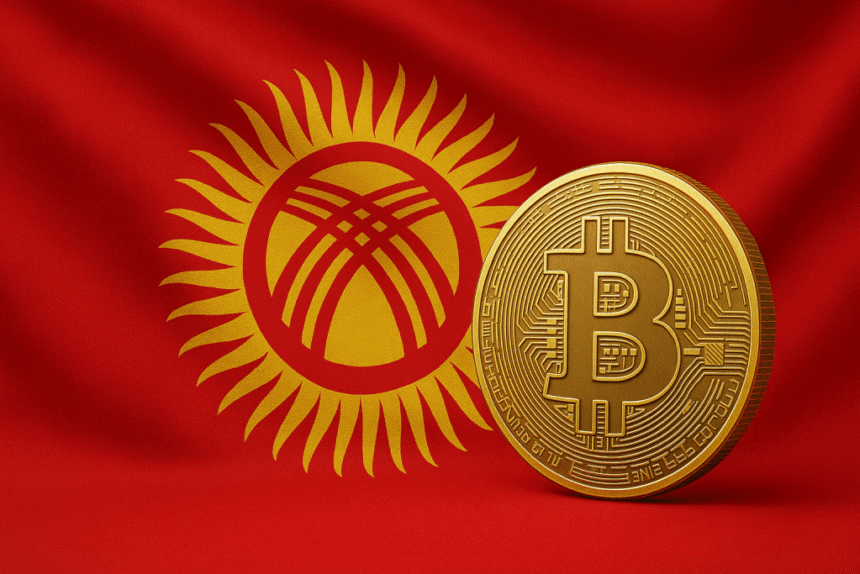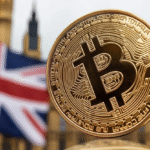Kyrgyzstan’s New Path in Digital Finance
Kyrgyzstan is forging a fresh approach to digital finance — not driven by speculation or central bank oversight, but rather with USDKG, a government-approved gold-backed stablecoin. This innovative finance measure is now the focus of an insightful documentary featuring the prime minister, the finance minister, and international partners.
A Resource-Rich Nation Embracing Innovation
Known for its stunning snow-capped mountains and vibrant bazaars, Kyrgyzstan also ranks among the world’s most resource-rich countries, boasting significant gold reserves and a forward-thinking attitude towards digital finance. As global blockchain adoption accelerates, this Central Asian nation is implementing its own distinctive strategy — one that combines the reliability of hard assets with the excitement of technological advancements.
Rich in nomadic traditions and breathtaking landscapes, Kyrgyzstan is quietly embarking on a financial experiment that connects tangible gold, digital dollars, and national aspirations — embodied in the government-supported stablecoin known as the Gold Dollar (USDKG).
The Legal Framework for Virtual Assets
In 2022, Kyrgyzstan enacted a law concerning virtual assets, legalizing cryptocurrency and establishing a regulatory framework for digital asset providers. Just three years earlier, the legal status of crypto was ambiguous. Currently, over 100 licensed exchanges are operational, with a turnover soaring to $4.2 billion, while the government significantly invests in Web3 infrastructure.
“You come to this place and it’s so natural and so beautiful,” remarked by Giovanni Pigni during a recent interview. “I wouldn’t have thought they were doing crypto here. But the government is going full force.”
Understanding USDKG
At the heart of Kyrgyzstan’s Web3 strategy is USDKG, which is pegged 1:1 to the US dollar and fully backed by central bank-grade gold held at the nation’s largest private bank. Unlike other gold-backed tokens, USDKG does not fluctuate with gold prices. Instead, it provides fiat-like usability anchored in robust reserves.
“We wanted something for international commerce, for remittances and for daily life,” stated William Campbell, the advisory lead at USDKG. “So we pegged it to the US dollar for stability — but backed it with real gold for trust.”
While USDKG is issued by a private entity, it operates under the supervision of Kyrgyzstan’s Ministry of Finance. An international third-party firm conducts biannual audits of the physical assets, and official reports are made publicly accessible on the project’s website to enhance transparency and foster user trust. “It’s our certificate of honesty,” Campbell explained. “You’ll be able to see the gold. Know it’s there. Know it’s real.”
The Need for Stablecoins
The rise of stablecoin usage in Kyrgyzstan stems from tangible necessity. Approximately 1.5 million Kyrgyz citizens live abroad as migrant workers, with remittances constituting nearly 30% of the country’s GDP. As such, stablecoins are emerging as a favored alternative to expensive traditional transfer services.
“A year ago, you could just buy and sell USDT,” observed one local official. “Now we’ve implemented KYC rules. We know who’s sending large sums, and we’ve trained the police to fight scams.”
Trust is cultivated through clarity.
Detailed Insights in the USDKG Whitepaper
The USDKG Whitepaper describes how a fully gold-backed stablecoin, audited and compliant with Kyrgyz law, can serve as a bridge between traditional finance and Web3.
Addressing Risks in Crypto Adoption
The risks that come with the adoption of cryptocurrency have not gone unnoticed. Increasing instances of scams and fraud have accompanied the growth of market activity. However, Kyrgyzstan is addressing these challenges with stricter compliance regulations and specialized training programs for law enforcement — an uncommon level of oversight in developing crypto economies.
The Experience in the Highlands
“For a small, landlocked country abundant in natural resources, this is the obvious thing to do,” he noted. “They’re really smart about it.”
Technopark and Future Ambitions
Kyrgyzstan’s Technopark in Bishkek now accommodates numerous Web3 startups, while educational institutions are introducing STEM curricula to cultivate a new generation of IT specialists.
Though comparisons to El Salvador’s Bitcoin initiative are likely, the strategies differ significantly. El Salvador embraced Bitcoin as legal tender — a highly volatile, decentralized asset. In contrast, Kyrgyzstan is adopting a more regulated strategy: USDKG is underpinned by physical gold reserves, pegged to the US dollar, and designed for stability and cross-border functionality.
“They want to become the next El Salvador,” Campbell remarked. “But they want to do it bigger and better.”
A Broader Transformation
This vision extends beyond cryptocurrency — it is part of a larger transformation. As explained by a government official in the documentary:
- The country is investing in its human resources to support this ambition.
Kyrgyzstan’s aspirations for USDKG surpass domestic stability. In a region where cross-border transactions often depend on slow, dollar-based intermediaries or unpredictable fiat currencies, USDKG presents a dependable, verifiable medium of exchange anchored in tangible gold. For businesses involved in regional trade — such as textile exports and agricultural imports — this facilitates quicker, clearer payments that minimize the risks of devaluation or banking issues. As a result, USDKG has the potential to establish itself as a preferred settlement layer in Central Asia and beyond.
By rooting its digital future in gold, governance, and geography, Kyrgyzstan is redefining how crypto adoption begins. It is not pursuing volatility — it is constructing resilience.
Whether it becomes a new benchmark or remains a regional advancement, USDKG marks a pivotal moment for emerging economies. “Kyrgyzstan may not be on everyone’s radar,” Giovanni concludes, “but after seeing this — it probably should be.”
Disclaimer. ViZi does not endorse any content or product on this page. While we strive to provide all relevant information available in this sponsored article, readers should conduct their own research before making any decisions regarding the company and bear full responsibility for their choices, nor should this article be interpreted as investment advice.





















